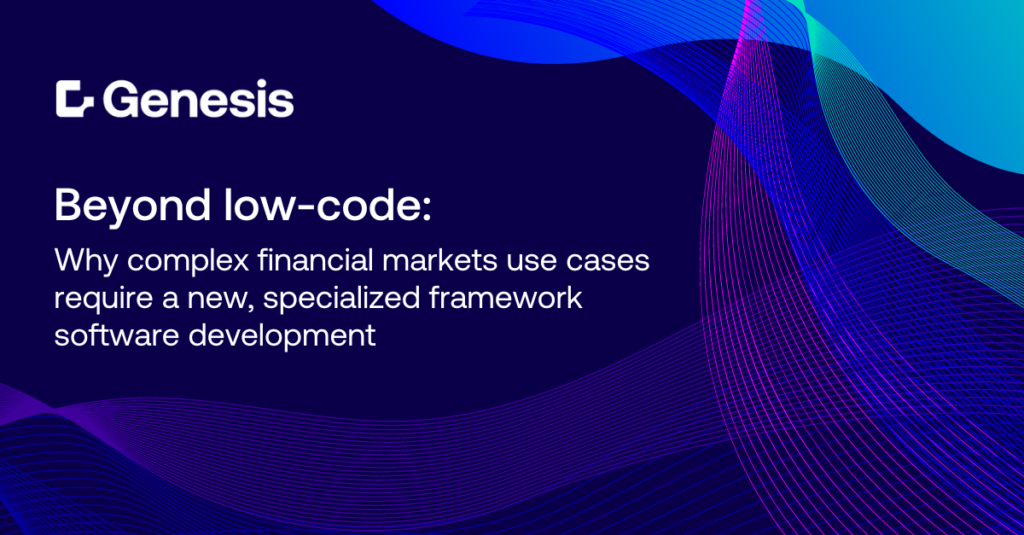News
90 results

Is AI the future of application development for financial markets?
AI won't replace the professional coder or professional code frameworks in the financial services industry. But it can enhance how developers use domain-specific platforms like Genesis, engineered to deliver unmatched…
Find out more arrow_forward
Genesis Launches Credit Insurance Application
Workflow, analytics, visualization and connectivity from the Genesis Application Platform replace spreadsheets in bank lending and financing businesses
Find out more arrow_forward
Genesis Application Platform Named Innovation Force in Financial Technology by TabbFORUM
Nova Award recognizes Genesis as a catalyst reinventing software development in financial markets
Find out more arrow_forward
Credit Insurance: How implementing a technology solution can scale your business while reducing operational risk
Learn how the implementation of a finance-grade system can support the growth of your Credit Insurance business.
Find out more arrow_forward
3 Ways to Future-Proof Middle Office Operations
The typical middle office functions in less-than-ideal conditions. Genesis' three-step framework empowers you to be more adaptable, efficient, and resilient.
Find out more arrow_forward
Genesis Launches Web-based Middle-Office Solution for Equities and Fixed-Income Trading
The Genesis Trade Allocation Manager provides a robust foundation for operational efficiency and regulatory compliance through a centralized application that automates trade matching, allocation, confirmation and other middle-office processes for…
Find out more arrow_forward
Beyond low-code: why complex financial markets use cases require a new, specialized framework software development
In this article, we'll explore how financial firms can overcome challenges and risks associated with software development in capital markets environments.
Find out more arrow_forward
How Can AI Unlock Primary Bond Market Opportunities for Asset Management Firms?
AI transforms asset management with a private LLM, swiftly decoding data from emails and chats. This ensures data security and efficiency, empowering real-time decision-making and a competitive edge in time-sensitive…
Find out more arrow_forward
AI in Genesis Bond Deal Solution Helps Asset Managers Make Faster Allocation Requests
New, AI-driven data services process unstructured deal data in email and instant messages
Find out more arrow_forward